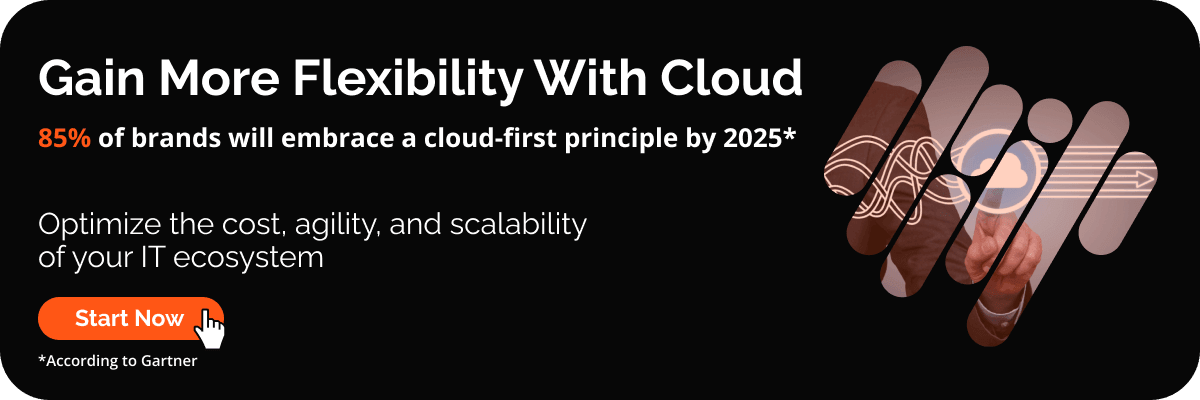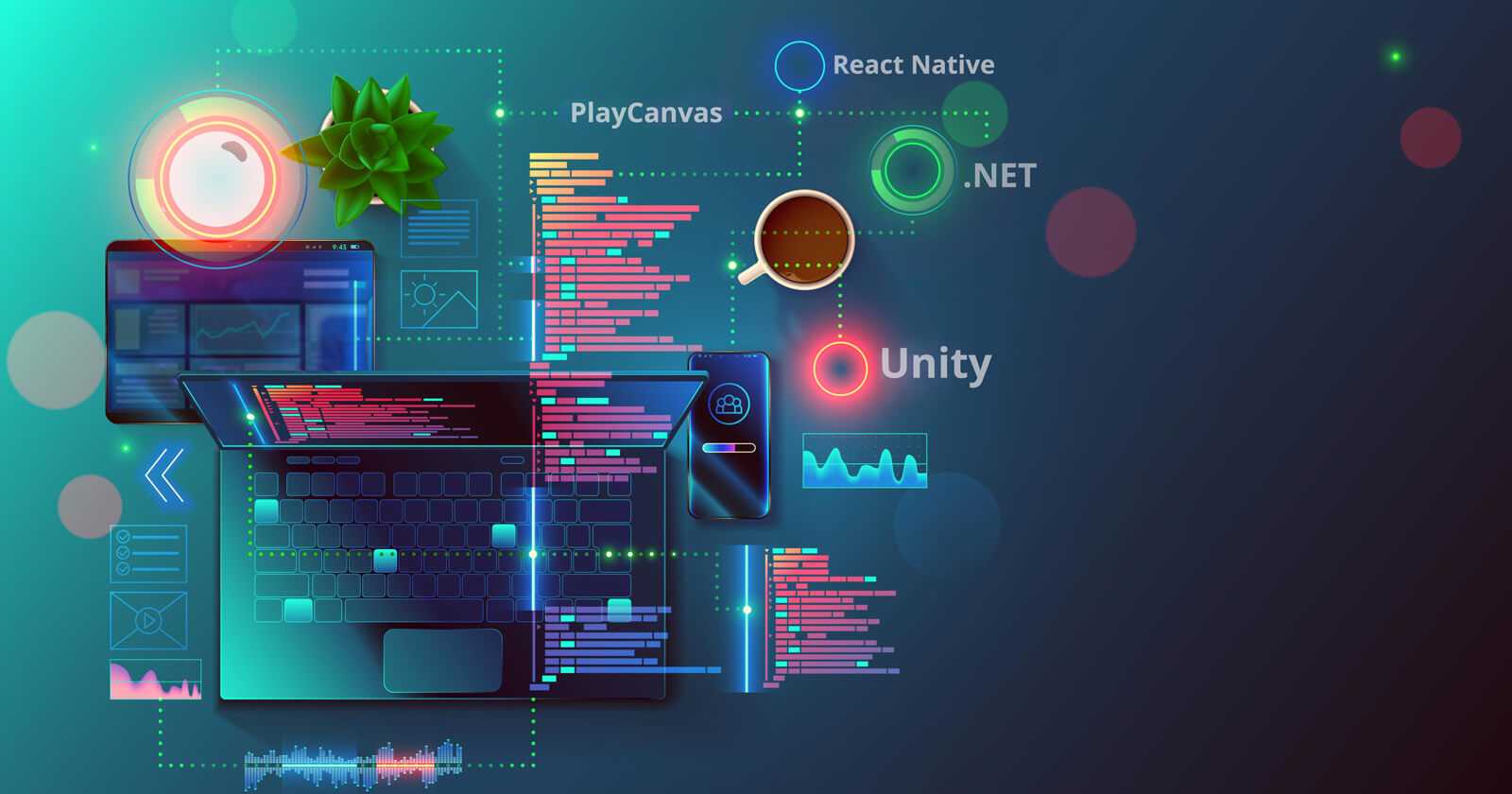The traditional approach to custom machine learning (ML) and artificial intelligence (AI) development is quite simple. You allocate an AI-experienced team and convey to them your vision for creating an intelligent app from scratch.
However, this approach requires not only setting up new infrastructure for data collection and processing but also conducting comprehensive research on tools and techniques that will align with your project expectations.
Luckily, there is a way to develop custom ML and AI solutions and skip these steps. It involves leveraging the Azure AI platform – a set of services designed for the development of artificial intelligence applications.
What is Azure AI, Exactly?
Simply put, Azure AI is defined as services and tools for the creation of machine learning and AI applications. Businesses and developers utilize the platform to build AI-based solutions faster and in secure settings further integrating them into their products, flows, and services.
The Azure AI is distinguished by its ready-made models. They can be used for computer vision, speech recognition, and natural language processing development. By streamlining the AI app development process, these algorithms let teams concentrate more on adding custom components into the final ML or AI solutions.
Benefits of Azure AI Services for Machine Learning & AI Development
Aside from faster AI and machine learning development, the utilization of Azure AI services has many other advantages. The most essential of them are:
- No Installation Required. There’s no need for on-premises infrastructure, software development teams can access AI capabilities through the cloud.
- Access to Pre-Built AI Models. Microsoft provides a library of pre-built AI models, which can be readily integrated into machine learning and AI applications.
- MLOps for Streamlined Development. MLOps (DevOps for machine learning) facilitates seamless collaboration and automation in the development, deployment, and management of machine learning models.
- ML & AI Frameworks Support. The platform offers support for popular machine learning and AI libraries, allowing developers to work with their preferred tools and languages.
- Integration Capabilities. Azure AI seamlessly combines with other Azure services, creating a powerful ecosystem for building end-to-end AI solutions.
So if your machine learning or AI project requires cloud hosting, integration with Microsoft Azure services, or a combination of both, Azure AI is a great option.
Advantages of Azure AI For Businesses
Now that you know the pros of using Azure AI for agile and scalable AI development services, let’s explore the benefits it can bring to your business:
- All-In-One Ecosystem
Azure AI offers an environment encompassing a spectrum of cognitive services, machine learning tools, and deep learning frameworks. This unified platform integrates with existing business applications, providing a centralized hub for machine learning and artificial intelligence development, deployment, and management. Since you use one interface, it’s easier to handle complex orchestration of various AI components.
- Simplified ML & AI Apps Scalability
Azure AI enables the scalability of applications through the deployment of solution clusters for deep learning and the processing of vast datasets. Leveraging Azure Kubernetes Service (AKS) automates the management and coordination of containerized workloads, ensuring seamless expansion of resources as demand surges. Such a robust scalability infrastructure helps businesses handle increased workloads and maintain optimal performance, all while harnessing the full potential of Azure AI solutions.
Read also:How to Optimize IT Infrastructure and Unlock the Cloud Potential
Check the ways of making your IT infrastructure performance better
- Customization Capabilities
Although Azure AI offers pre-built models, it doesn’t limit you to just off-the-shelf machine learning and AI solutions. The platform provides developers with the ability to fine-tune applications to suit specific needs. This means adjusting not only the model itself but also how it learns from data (hyperparameters) and what data it learns from.
- Robust Security and Compliance
Azure AI prioritizes security and regulatory adherence through advanced cybersecurity measures. This includes measures such as 256-bit AES encryption for data protection in transit and at rest. Additionally, Identity and Access Management (IAM) controls access to the system by assigning roles to users, user groups, and services so that they perform specific tasks on different resources.
Azure AI is widely regarded as the best solution for developing scalable machine learning and artificial intelligence apps in the cloud. 85% of Fortune 100 companies use the platform because of its proven ML and AI capabilities.
The simplicity of machine learning and AI solution implementation can vary depending on its architecture. Yet you can use Azure AI to run an application of any scope.
Azure AI vs AWS AI: Similarities and Differences
While numerous comparisons of Azure and AWS as cloud storage providers are available online, there is a lack of resources that explain the difference between Azure AI and AWS AI. Both platforms offer a range of tools and services for creating and deploying solutions utilizing intelligent technologies. Yet, is there a significant disparity between them, and if so, which one holds the edge? We reveal the answers in this section, so keep reading.
To understand which of the two platforms presents greater business potential in terms of AI and machine learning development services, let’s examine their services in three key areas:
- natural language processing services;
- image identification and analysis;
- video content recognition and analysis.
The variances between Azure AI and AWS AI with regards to text processing services look as follows:
Natural Language Processing APIs Comparison
| Features | Azure AI | AWS AI |
| Speech-To-Text | + | + |
| Text-To-Speech | + | + |
| Entities Extraction | + | + |
| Language Recognition | 122 languages | 100 languages |
| Topics Extraction | + | + |
| Spell Check | + | – |
| Autocompletion | + | – |
| Voice Verification | + | + |
| Intention Analysis | + | + |
| Relations Analysis | + | – |
| Sentiment Analysis | + | + |
| Syntax Analysis | + | – |
| Tagging Parts of Speech | + | – |
| Filtering Inappropriate Content | + | – |
| Low-Quality Audio Handling | + | + |
| Translation | 60 languages | 6 languages |
| Chatbot Development Tools | + | + |
As you can see, both platforms encompass essential features for robust machine learning and AI app development. Nevertheless, Azure AI boasts a more extensive array of services.
Here are the differences between Azure AI and AWS AI concerning image content recognition and analysis:
Image Recognition Services Comparison
| Features | Azure AI | AWS AI |
| Object Recognition | + | + |
| Scene Identification | + | + |
| Face Detection | + | + |
| Facial Analysis | + | + |
| Inappropriate Content Identification | + | + |
| Celebrity Detection | + | + |
| Text Recognition | + | + |
| Written Text Detection | + | + |
| Landmark Recognition | + | – |
| Dominant Colors Recognition | + | – |
Again, the table shows that Azure AI offers a wider range of tools for image processing solutions development.
As for video transcription, translation, and language identification services, Azure AI and AWS AI have the following built-in functionalities:
Video Analysis Functionalities Comparison
| Features | Azure AI | AWS AI |
| Object Recognition | + | + |
| Scene Identification | + | + |
| Face Detection | + | + |
| Facial Analysis | + | + |
| Inappropriate Content Identification | + | + |
| Celebrity Detection | + | + |
| Text Recognition | + | + |
| Person Monitoring on Video | + | + |
| Audio Transcription | + | – |
| Voice Tagging | + | – |
| Key Images Extraction | + | – |
| Video Translation | 50+ languages | – |
| Brand Recognition | + | – |
| Annotation | + | – |
While AWS AI encompasses essential features for crafting AI-driven video analysis solutions, Azure distinguishes itself by providing more advanced services, including voice tagging, brand identification, annotation, and more.
As public cloud platforms, both Azure AI and AWS AI platforms don’t require installation and setup and can be used directly from the cloud. Due to this, they also provide simplified workflows for scaling machine learning and artificial intelligence applications to businesses.
It’s also worth highlighting that established enterprises often lean towards Azure AI as most of them built their IT Infrastructures using Microsoft software products. Conversely, startups and fledgling companies typically find favor with AWS. So the decision between Azure AI and AWS AI depends not only on business needs but also on the scale and developmental stage of the enterprise.
What Machine Learning & AI Solutions Can Be Developed Using Azure AI?
Let’s now explore which specific AI-powered applications you can build by leveraging Azure AI. We’ll delve into the technical details of each solution and illustrate examples of their implementation.
AI Chatbots Development
We all know chatbots as virtual conversational assistants. To create them, AI development companies utilize advanced machine learning algorithms and NLP techniques that understand and respond to user queries in a human-like manner. Enterprises integrate chatbots into applications, websites, or platforms to automate and, thus, speed up communication with users.
Well-built chatbots handle many tasks – from providing information and answering frequently asked questions to facilitating complex transactions or processes. Furthermore, they can adapt to various conversational styles.
Consider a web-based metaverse app for education as an example. Embedded within this environment, the chatbot promptly aids students by offering instant responses to their requests. Moreover, it adeptly spots mistakes in their work and offers suggestions for improvement. Think of it as a dedicated digital mentor, accessible 24/7.
Read more: Metaverse Defined & Business Opportunities
Find out metaverse capacities and embrace virtual world solutions
Tech stack available on Azure AI: C#, JavaScript, Java, Python.
Document Intelligence Solutions
Document intelligence solutions are created to process, analyze, and extract data from various types of documents. The integration of machine learning models makes these steps happen automatically. This is particularly beneficial for organizations dealing with large volumes of paperwork.
Some of the biggest pros of document processing solutions? Well, there are numerous. Besides extracting text data from scanned documents, algorithms distinguish their different types (for example, invoices, contracts, letters, etc.) and send them to the proper systems for processing. You can also train your model to check information from digital documents for correctness and authenticity and enter the extracted data into the appropriate databases.
Fintech companies, for instance, can utilize document processing apps to swiftly assess credit applications. This can be done by analyzing supporting documents during credit assessment procedures. As a result, organizations will make quicker and more accurate lending decisions.
Tech stack available on Azure AI: C#, JavaScript, Java, Python, Rest API.
Speech-To-Text App Development
This software solution converts spoken language into written text, enabling applications to understand and respond to verbal commands. At its core, this technology relies on algorithms and neural networks that analyze the audio signal, discerning its linguistic structure. The AI development process typically encompasses spectral analysis, neural network training, and statistical methods, all aimed at achieving precision in speech recognition.
For example, you can utilize speech-to-text solutions during your day-to-day meetings. The application will automatically convert audio and video recordings into text for further analysis and storage.
Tech stack available on Azure AI: C#, C++, Go, Java, JavaScript, Objective-C, Python, Swift, CLI, REST.
Text-To-Speech Solutions
As the name suggests, these solutions are opposite to the above-described applications – they transform text into speech that sounds natural. The Azure AI solutions employ neural networks to create computer-generated voices that closely mimic human recordings. Every neural voice model is accessible in both 48kHz and 24kHz formats.
Imagine text-to-speech software integrated into a vehicle’s system. With customized settings, the driver can receive specific audio instructions that guide them to their workplace, home, or any other destination. This feature greatly enhances driving safety and convenience by enabling hands-free voice control.
Tech stack available on Azure AI: C#, C++, Go, Java, JavaScript, Objective-C, Python, Swift, CLI, REST.
Face Detection Development
Last but not least, AI-based business solutions are face recognition software. In recent years, its popularity has surged due to its frequent use in addressing various security issues, with an estimated value of 8.5 billion U.S. dollars in 2025.
Face recognition software operates on a simple principle: it scans the features of a person’s face (parameters of the nose, length of the forehead, shape of the eyes, etc.) and matches them with facial images archived in the database. The system validates the individual’s identity upon discovering a match.
However, the application of face detection solutions extends beyond just the realm of security. As a case in point, retailers utilize them to enhance customer relations. Shop managers utilize artificial intelligence and facial recognition technology to assess customers’ feelings about a product, pinpoint the most and least attractive items, and then modify their inventory accordingly.
Tech stack available on Azure AI: C#, JavaScript, Python, REST API.
The listed machine learning and AI implementation solutions don’t form a complete list of services available on the Microsoft Azure AI platform. Their offerings span across 13 areas, while your ideas to bring them to life know no bounds.
Machine Learning & AI Development Best Practices
Now that you know how to save time on creating machine learning and AI apps with Azure AI, it’s time to discover the best ways to ensure your end solution will be developed meeting the most important criteria. Below are the main practices to remember at various points of your machine learning and AI development solution.
Prioritize Quality Data
The foundation of any successful ML or AI project lies in the quality of the data it operates on. It’s crucial to verify that your dataset is devoid of errors, balanced, and representative of the problem you’re addressing. To check this, meticulously collect and curate data and focus on removing outliers and irrelevant information. Additionally, addressing class imbalance will prevent bias in the model’s predictions.
Perform Data Preprocessing
This step involves addressing data gaps, a common occurrence in real-world datasets. To do this, machine learning and AI development companies employ techniques such as mean, median, or algorithms like K-nearest neighbors.
Another critical aspect is standardizing features that bring all variables to a uniform scale, preventing certain features from dominating the learning process. When it comes to categorical variables, one-hot encoding emerges as a potent technique, guaranteeing integration with different machine learning algorithms.
Engineer Features
Feature engineering involves the curation and manipulation of variables within your dataset, aiming to enhance the efficiency of the model development process. This step significantly impacts the effectiveness of your ML or AI system. It’s essential to obtain pertinent characteristics and even produce new ones if necessary, leveraging domain knowledge to improve the model’s ability to make accurate predictions.
Select Appropriate Models
Your choice should be based on the problem type, whether it’s classification, regression, or specific characteristics of your data. Understanding the strengths and weaknesses of various algorithms is key to making an informed decision.
Evaluate Models
Once models are trained, you need to evaluate their performance using relevant metrics. Accuracy, precision, and recall are just a few examples of evaluation metrics that might be applicable, depending on the problem at hand. Below are formulas to measure these indicators:
Accuracy = N/T
- N – Number of Correct Predictions
- T – Total Number of Predictions
Precision = Tr/(Tr + Fp)
- Tr – True Positives
- Fp – False Positives
Recall = Tr/(Tr + Fn)
- Tr – True Positives
- Fn – False Negatives
Additionally, consider implementing cross-validation techniques to ensure the model’s robustness and generalizability.
Implement Deployment in a Controlled Environment
Before deploying your model in a production environment, it’s essential to rigorously test it in a controlled setting. This helps uncover potential issues and ensures that the model performs as expected under real-world conditions. Thorough testing reduces the risk of costly errors or inaccuracies in live applications.
Document Every Step
Comprehensive documentation is the backbone of reproducibility and knowledge transfer in machine learning and artificial intelligence projects. Record every phase of the development process, from data collection and preprocessing to model selection, training, and deployment. This not only aids in troubleshooting but also enables others to replicate and build upon your work.
AI solutions are meant to make your business operate at higher levels. To get the best results, follow the above machine learning and AI development best practices. If your ML/AI project is missing some key points, you now have the information you need to improve your flow.
Top 6 Brands That Have Built Machine Learning & AI Solutions on Azure AI
It’s a time when finding enterprises that don’t leverage AI solutions in their business operations is almost impossible and many of them rely on Azure AI when developing them. So, are you ready to get inspired? Check out this list of companies that are thriving by using Microsoft Azure AI.
#1. Volkswagen
Every year, the Volkswagen Group translates more than two billion words and documents in over 60 languages. Some of the translated documents require legal precision, further complicating the process. Volkswagen’s decision to adopt Microsoft Azure was driven by its promise of greater scalability and the availability of neural machine translation models. They have integrated Azure Cognitive Services and a collection of pre-trained models into their translation process.
As a result, the company handles 16,000 projects daily, and the transition from rules-based to neural machine translation models has significantly improved efficiency. The new system, built on Azure AI, quickly translates files of various formats such as .xls, .tlf, XML, PowerPoint, and others.
“In the past, we had to get someone who could translate documents for us, and now we can quickly translate them with a machine. It makes communication across languages faster and more effective.”
says Nikolas Meyer-Aun, a Head of Quality and Supplier Management for Languages Volkswagen Group.
#2. E.ON
E.ON, Germany’s largest power supplier, faced the challenge of inspecting its extensive 700,000 km power grid. The responsibility of ensuring a stable power supply to households and businesses called for a more efficient and safer approach. To address this, E.ON turned to digital solutions, leveraging Azure AI services.
E.ON introduced a transformative process by deploying drones to capture images of power poles and lines. These images were then uploaded to Microsoft Azure and processed using Grid Vision, an AI-powered inspection tool provided by eSmart Systems. This integration optimized the maintenance process, enhancing efficiency and safety. Subsequently, Azure services, including Azure Data Lake Gen2, Azure Logic Apps, Azure Functions, and Azure Event Hubs, were instrumental in handling the images.
#3. Swift
Swift collaborated with Microsoft to counteract the mounting menace of financial fraud – a problem costing hundreds of billions annually. For this purpose, companies choose Azure Machine Learning and Azure confidential computing to create an anomaly detection model for transactional data. Remarkably, this is achieved without the need to shift or duplicate data from safe locations.
While the final outcomes are still in the works, Swift’s Chief Innovation Officer Tom Zschach sees significant potential in the Azure-based ML solution:
“Working together with Microsoft and with our banking customers, we can build a model that’s much more accurate and much more performant than I think has ever been seen in financial services”
#4. KPMG
KPMG has integrated Azure OpenAI Service to transform the service delivery and coding lifecycle, in line with their goal of improving product experience and content distribution. The selection of Microsoft Azure OpenAI Service was driven by its robust technical and business architecture. These factors enable KPMG to optimize its data while adhering to crucial governance, risk, and regulatory standards.
The company uses Azure OpenAI to craft useful tools that will help better identify and classify tax data and utilize them for Environmental and Social Taxes. By doing this, KPMG analyzes the data, finds out their relationships, and accurately predicts the correct tax data and their types. Opting for such an AI solution reduces risks and increases confidence in the correctness of tax contributions.
#5. NBA
With Microsoft Azure, the NBA has launched a direct-to-consumer platform, aiming to provide personalized content tailored to each fan’s preferences. CourtOptix transforms colossal data sets into valuable player and game insights, deepening fan involvement.
At the heart of this initiative is an AI-driven system that dissects player and ball movements during a game. This powerful tool processes an astounding two billion data points per NBA season, enabling a deeper understanding of the game. Azure’s suite of tools, including Azure Data Lake Storage and Azure Machine Learning, forms the backbone of CourtOptix.
#6. Reddit
Reddit aimed to implement an AI solution for generating descriptive alt text for images to enhance accessibility for users with visual impairments. After a thorough evaluation of various AI-based caption generation services, the company chose Microsoft Azure Cognitive Service for Vision due to its impressive accuracy, detailed captions, and user-friendly API.
The new solution not only automatically generates descriptions for the millions of pictures constantly uploaded by users to the community, but it has also led to an observed increase in traffic on reddit.com. The inclusion of alt text has improved search engine comprehension and indexing of the site’s content.
Ultimately, when deciding which Azure AI service to choose, there are many key elements to keep in mind how the companies described in this section did.
And, most importantly – to whom to entrust the development of an ML or AI solution?
In the next section, we will share the factors to consider when choosing a proficient artificial intelligence development company specializing in Azure AI services.
Getting Started With Azure ML & AI Development: Budget Considerations and Provider Selection Criteria
Embarking on the journey of ML and AI solutions is a strategic move for many companies. And when it comes to planning a budget for developing them, keep in mind these factors:
- First thing first, the cost of talent acquisition and retention. Skilled data scientists, machine learning engineers, and AI specialists are in high demand. Today, such expertise is highly valued and paid for.
- The second aspect is the infrastructure required to support ML and AI initiatives. High-performance computing resources, including GPUs, are essential for training complex models, and cloud services may be leveraged for scalability and flexibility. Licensing fees for specialized software tools and platforms should also be factored into the budget.
- Thirdly, don’t forget to allocate costs for ongoing maintenance and optimization. ML models require periodic retraining and fine-tuning to be sure they remain effective in dynamic environments.
Coming back to the first factor, let’s see how exactly to choose an AI and machine learning development company in four steps.
Specify Your Project Requirements
Before partnering with a machine learning and AI development company, form a clear plan that includes your project’s objectives and scope. To avoid choosing the wrong partner, ask yourself the following questions:
- What precise business challenges do you intend to address through ML and AI?
- Is your focus on predictive analytics, natural language processing, or perhaps computer vision services?
Well-defined objectives will act as a guiding beacon for your project’s journey.
Research Potential ML & AI Development Companies
Begin your search by compiling a list of potential machine learning & artificial intelligence development companies. Don’t limit yourself to online directories and search engines – reach out to your network to find a trustworthy software development company. Pay attention to providers that have a track record of successful AI projects.
Examine the Technical Expertise
Analyze the technical expertise of each shortlisted company. Assess their proficiency in developing artificial intelligence and machine learning Azure solutions. Look for certifications, partnerships with major cloud providers, and a team with a diverse skill set in data science and engineering.
Go Over the Company’s Contract Terms
Before sealing the deal, it’s imperative to meticulously review the contract terms. Ensure that all aspects, from deliverables and timelines to costs and maintenance agreements, are clearly outlined. This safeguards against any potential misunderstandings or discrepancies down the line.
By adhering to these selection criteria, you pave the way for a successful Azure ML and AI development project. Remember, the provider you choose is not just an associate but a partner in realizing your vision. Invest the time and effort now, and reap the rewards of a seamless and impactful project in the future.
The Bottom Line
Even though there are many companies offering custom ML and AI development services, not all of them are really skilled in using Microsoft’s Azure AI platform. So, it’s a good idea to seek out trusted software development companies with proven experience in Azure AI and real AI projects.
At Visartech, we prioritize using Azure for creating personalized AI applications. Besides building AI-powered apps from the ground up, we also have expertise in integrating AI features into existing platforms.





